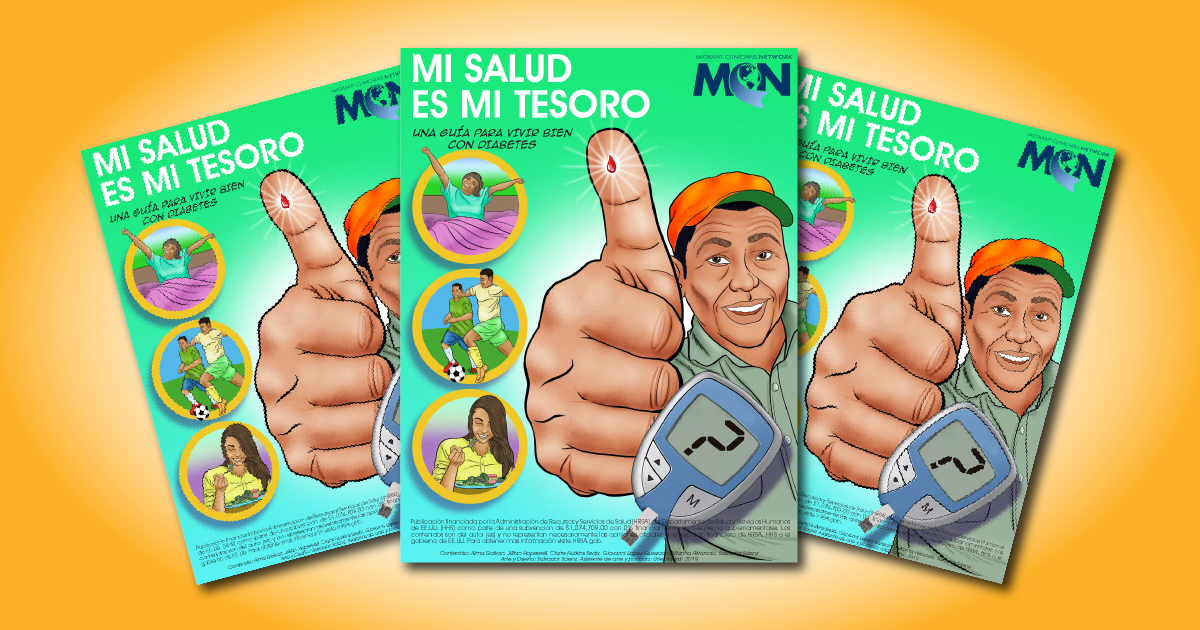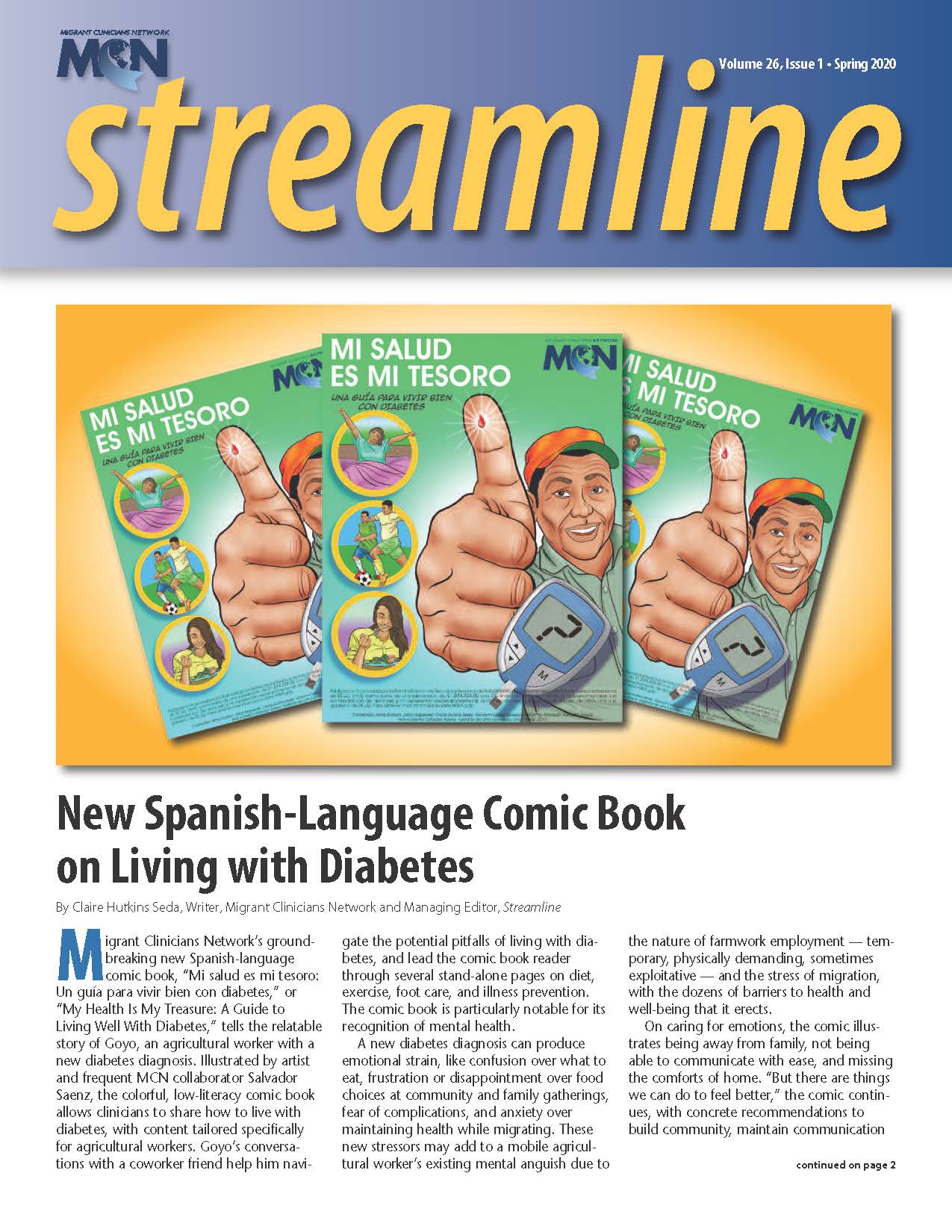
Migrant Clinicians Network’s groundbreaking new Spanish-language comic book, “Mi salud es mi tesoro: Un guía para vivir bien con diabetes,” or “My Health Is My Treasure: A Guide to Living Well With Diabetes,” tells the relatable story of Goyo, an agricultural worker with a new diabetes diagnosis. Illustrated by artist and frequent MCN collaborator Salvador Saenz, the colorful, low-literacy comic book allows clinicians to share how to live with diabetes, with content tailored specifically for agricultural workers. Goyo’s conversations with a coworker friend help him navigate the potential pitfalls of living with diabetes, and lead the comic book reader through several stand-alone pages on diet, exercise, foot care, and illness prevention. The comic book is particularly notable for its recognition of mental health.
A new diabetes diagnosis can produce emotional strain, like confusion over what to eat, frustration or disappointment over food choices at community and family gatherings, fear of complications, and anxiety over maintaining health while migrating. These new stressors may add to a mobile agricultural worker’s existing mental anguish due to the nature of farmwork employment -- temporary, physically demanding, sometimes exploitative -- and the stress of migration, with the dozens of barriers to health and well-being that it erects.
On caring for emotions, the comic illustrates being away from family, not being able to communicate with ease, and missing the comforts of home. “But there are things we can do to feel better,” the comic continues, with concrete recommendations to build community, maintain communication with family, and seek health services. This direct recognition of the emotional toll of living with diabetes as an agricultural worker is largely absent in most patient-facing diabetes materials.
The comic’s recommended diets include an example menu that follows the American Diabetes Association’s low-carb, low-fat diet, and a second example menu of a strict whole-foods, plant-based diet, both of which have been well documented to lower hemoglobin A1c. The foods recommended are familiar to readers from Mexico, Central America, and the Caribbean, like a salad of jicama, carrots, and celery with chile and lime, or black beans with cumin. A fill-your-plate page emphasizes the inclusion of a wide range of vegetables. The exercise recommendations keep in mind an agricultural worker’s low income and limited time outside of work, recommending lifting sand- or water-filled water jugs, gardening, and walking as low-cost exercises that are widely accessible. The final page of the comic allows the reader to fill in recorded A1c levels at appointments and to track goals relating to medicine, exercise, food, and weight control.
The following two pages are excerpts from the new comic book. The entire comic book is available for download and printing here. Subscribe to MCN’s blog to be notified of the release of new MCN materials, including the diabetes comic book: www.migrantclinician.org/blog.
Read this article in the Spring 2020 issue of Streamline here!
Sign up for our eNewsletter to receive bimonthly news from MCN, including announcements of the next Streamline.
